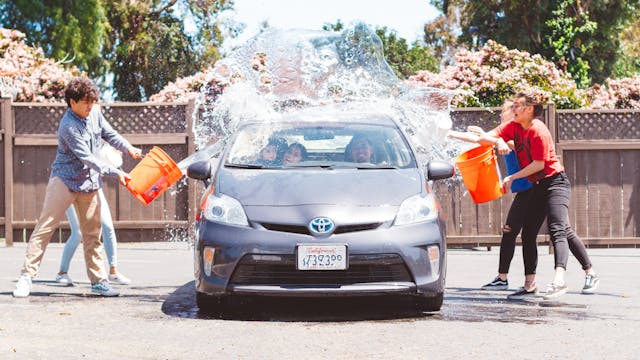If you drive at all, you are probably looking for ways to save money on gas. It’s just one more reason not to ignore your routine maintenance. Getting a fuel-efficient vehicle can certainly help you spend less at the pump. There is a difference of up to $2,000 per year in how much drivers pay for gas on average, and it’s not just the drivers of compacts who are saving.
However, taking good care of your car, truck or motorcycle also has a significant effect on its fuel economy. What routine maintenance is most associated with better mileage?
Tip 1: Check Tire Pressure Before Those Long Midwestern Drives This Fall
It is said that for each 1 psi (pounds per square inch) your tires lose, your gas mileage will decline by 0.1 percent. Yet it’s easy to overlook this rule of thumb, and not just because math is involved. We simply don’t always feel the gradual loss of air. But filling your tires per the instructions for your specific vehicle directly impacts how much you will spend due to many factors:
- Improved mileage
- Tread maintenance
- Performance while on the road
- Preservation of your tires
- Better ability to stop and accelerate properly
Check inside the drivers side door or your owners manual for the correct tire pressure for both front and back tires, as they may differ.
You may need to fill your tires more in the coming months (about once/month is usually recommended). As fall approaches, so does cooler air. According to Car and Driver, car tires lose or gain roughly a pound of pressure with every ten degrees of fluctuation in temperature. Keep an eye on your thermostat as temperatures drop and fill your tires as needed.
Tip 2: Pay Attention to Warning Lights on Your Dashboard
Engine problems can cause a vehicle to start using more gas than usual, as well. Fortunately, modern vehicles let us know something is wrong through dashboard alerts. For example, the oxygen sensor controls your car’s fuel injection system and can therefore have a big impact on your gas mileage. While this part doesn’t get a lot of attention, a defective sensor can take a toll in many ways, from your ability to accelerate properly to emissions problems.
A check engine light or any other dashboard warning light should be taken seriously. Since each car is different, refer to your manual or a trusted mechanic for additional tips on how to maintain your vehicle and get the best gas mileage possible.
Tip 3: Use the Recommended Oil in Your Oil Changes
Not only is it wise to change your oil regularly to upkeep your engine, but the kind of oil you use can also have a lasting impact on the health of your vehicle. That’s because the oil plays an important role in lubricating the various components of your engine, which in turn helps you maintain optimal fuel efficiency. When low quality oil is used or the oil becomes contaminated, that can lead to a range of problems. It can slow down engine parts, forcing the engine to work harder and ultimately lowering your fuel efficiency.
Tip 4: CFSC Auto Services Helps You Address Your Auto Needs & Save Money
There are other ways people can overspend on car ownership, and that includes failing to renew or replace license plates, update stickers, and register their vehicle properly and on time. Here at CFSC Auto Services, we are happy to help you out in all of these areas so you can avoid tickets and penalties while out on the road. We figure, why stand in line at the DMV or some government building when you can just swing by and get the help you need in minutes.
Give us a call today, stop by your nearest CFSC location, or check out CFSC Auto Services online to find out more about our broad range of auto and financial services!




